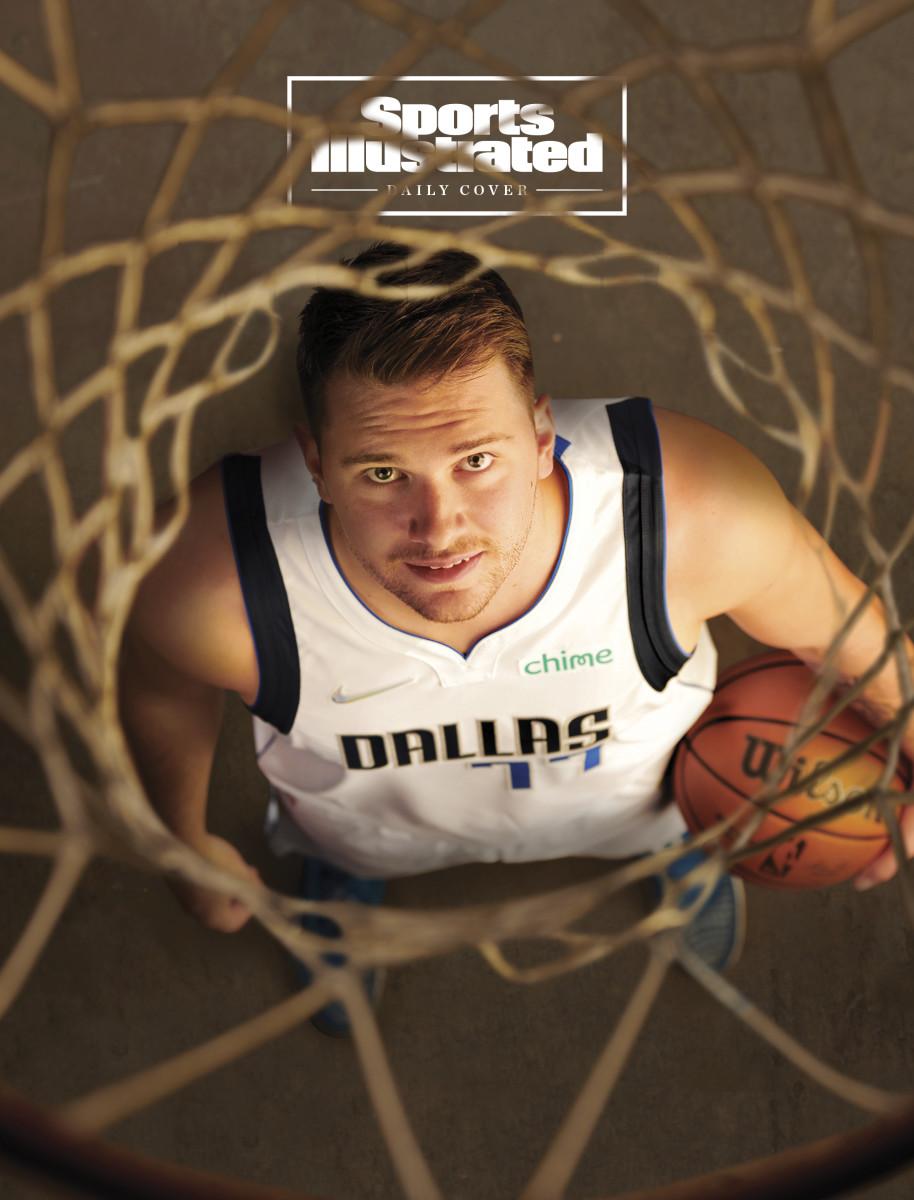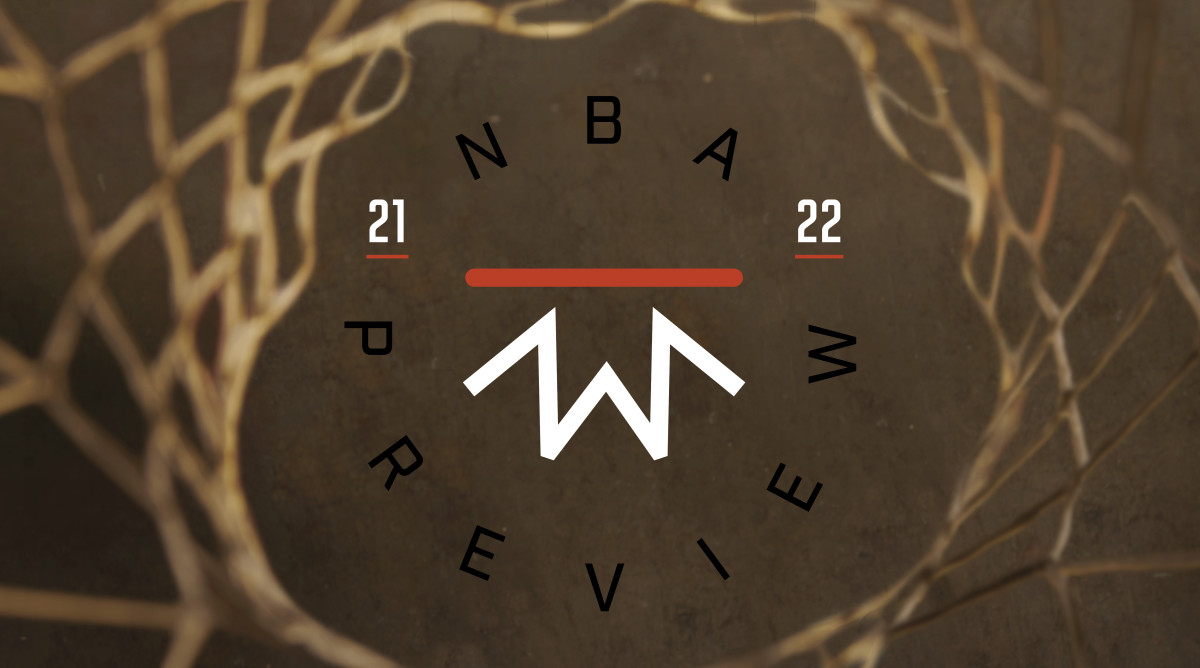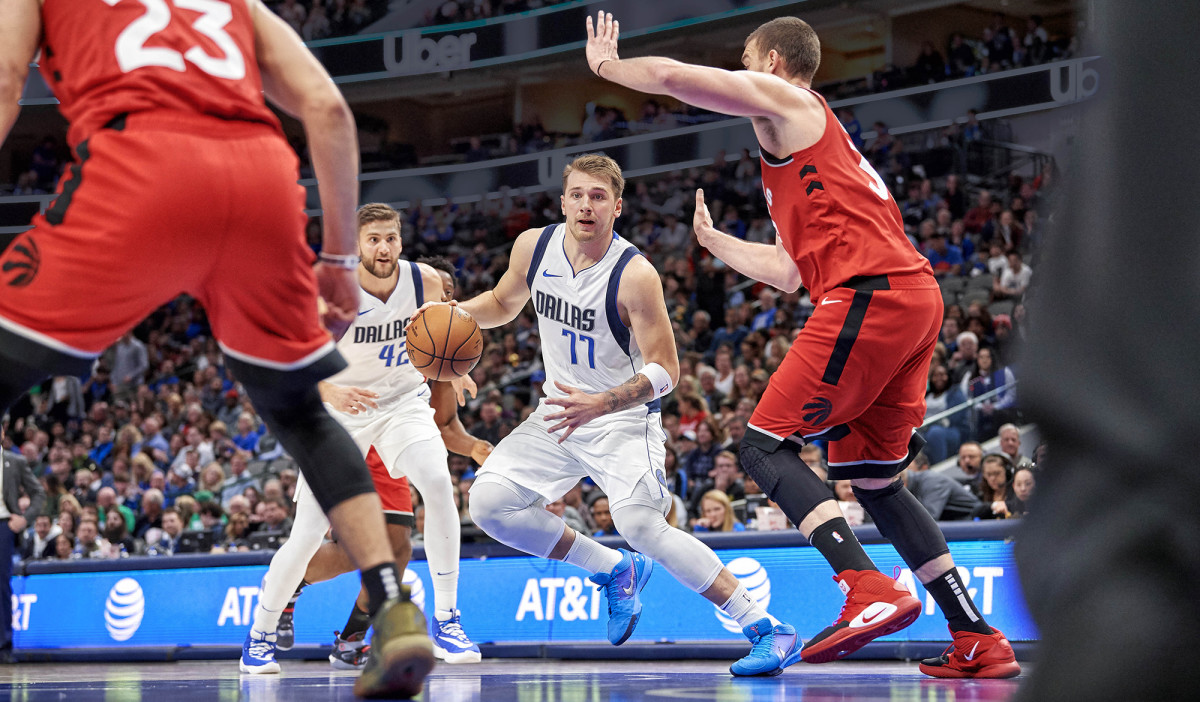Learning From the Best
The 2021–22 NBA season tips off on Oct. 19, and between now and then the Crossover staff will be analyzing all of the biggest story lines ahead of what promises to be an unforgettable campaign. You can find our NBA preview stories here.
Jason Kidd isn’t one to ignore the obvious.
With seven head-coaching vacancies open over the summer, Kidd considered leaving the Lakers after his second year as an assistant. And as he mulled a potential third round as an NBA boss there was a factor that made one of the positions stand out. “Being able to have an opportunity to work with a young star like Luka, that’s not something you can pass up,” Kidd says. “He’s super talented. He knows how to play the game; he has a drive that’s unique for a player so young.”
So now Kidd returns to Dallas, where he’s the all-time leader in assists per game, looking to build a winner around the 6' 7" Slovenian guard who’s next on that list: Luka Dončić, 22, who last year became the third player in NBA history (joining Tiny Archibald and Oscar Robertson) to average 25 points and seven assists through his first three seasons.

But it’s much more than just Dončić’s numbers that drew Kidd’s attention. It’s his flair for the dramatic, his comfort late in games, especially for players so young. Dončić buried a buzzer beater to beat the Clippers in a 2020 playoff battle, a shot that elicited maybe the most exclamatory “Bang!” of Mike Breen’s broadcasting career. Last season featured an acrobatic game-winner to top the Grizzlies in April as the Mavericks scrapped for playoff positioning and three 40-point outbursts in a seven-game, first-round loss to the Clips. “What he can do when the lights are brightest isn’t normal,” Kidd says. “It’s special.”
That brilliance hasn’t been lost on his teammates. Center Dwight Powell raves about Dončić having “eyes in the back of his head” when the two dance down the lane on pick-and-rolls, and point guard and fellow 2018 draftee Jalen Brunson is still marveling at a pass Dončić made for a corner three during their rookie year.
All of that—the production, the moxie—led the Mavs to commit $207 million to Dončić in a five-year deal that starts next season. While he acknowledges there are heightened expectations, he’s also quick to appreciate what he’s accomplished thus far. “My dream was only to play in the NBA at all,” Dončić says. “To be in this place now, it’s unbelievable.”
But with a megasalary comes pressure, especially on a franchise that won just one championship during Dirk Nowitzki’s 21-year run—which came in 2011, with Kidd at the point. Capitalizing on Dončić’s prime is imperative. That helps explain Dallas’s shift in direction. When Dončić joined a team devoid of top-line talent in 2018, the plan seemed simple: shed veterans, endure a few years of pain and return to the playoffs with a new core of Dončić and lottery picks.
Dončić’s precocity upended the plan. He averaged 21.2 points, 7.8 rebounds and 6.0 assists as a rookie, slicing up opponents with step-back threes and cross-court dimes flung with either hand. As Dončić’ dazzled, the Mavericks made the first major alteration to their blueprint, sending three players and a pair of first-round picks to the Knicks for 7' 3" Kristaps Porziņģis.

Porziņģis is no stranger to Dončić’s brilliance. They faced off before Luka’s NBA debut, a September 2017 matchup between Slovenia and Latvia in the EuroBasket quarterfinals. Dončić poured in 27 points in a 103–97 victory. Porziņģis was no slouch himself, scoring a game-high 34. But in the final minutes, Dončić took control. He juked Porziņģis into the lane with two hard dribbles, creating a gulf of space before he calmly retreated, set his feet and nailed a triple. Dončić bobbed his head in celebration while strutting past Slovenia’s bench, a phenom of 18 going on 28.
“Every time I think about Luka, I think about the natural talent that he is,” Porziņģis says. “The kid is unbelievable. He’s always known what it takes to win.”
Uniting the two seemed a coup for Dallas. Both are prodigious offensive talents who entered the NBA as relatively polished products, and their skills are complementary. In theory.
Dončić excels at orchestrating the pick-and-roll, shielding defenders on his back as he snakes his way through the paint. Porziņģis, 26, is a perfect partner for such actions, able to both rise above the rim as a roll man or tiptoe behind the three-point line, where he’s a career 36.1% shooter. The partnership has shown flashes of brilliance, including a 20-game stretch to close the 2019–20 season in which Porziņģis averaged 26.3 points. The end of last year was a different story.

Porziņģis spent significant time outside the arc to stretch the defense, uninvolved as Dončić danced on the perimeter. In the last five games of the Clippers series Porziņģis scored just 58 points. He lobbed not-so-cryptic criticisms about former coach Rick Carlisle’s strategy in September. “I was used a lot as a spacer and just shooting threes,” Porziņģis said. “That’s not my whole game. There’s more to my game, more than what I can do.”
Dončić realizes part of his job is to unlock those other facets. “There’s a lot of things I can improve on, off the court and on the court,” Dončić says. “Obviously, [involving teammates] is one of them.” He noticed a difference in Porziņģis this summer. “He is in way better shape this year, especially mentally,” Dončić says. “You could see him in a good mood when we were playing pickup. I think we’re in for a great year together.”
Watch NBA games online all season long with fuboTV: Start with a 7-day free trial!
Creating a more egalitarian attack is a high priority for Kidd, one of the most visionary playmakers in NBA history. As a coach, he helped guide the Bucks from No. 26 in offensive rating in 2015–16 to 13th the next year, and he empowered Giannis Antetokounmpo as a lead ballhandler, trusting his vision and playmaking even as turnovers mounted for the 6' 11" unicorn.
Kidd stresses the need for each player to be engaged in the attack, a seemingly obvious point that’s often lost in today’s game. Don’t expect to see Dončić initiate isolation after isolation as James Harden did with the Rockets. Kidd views his leading man as more of an offensive fulcrum than a sole engine. “There’s a significant stress level [Dončić] carries, and we should have ways to relieve some of that,” Kidd says. “We have a good crew here and a lot of offensive talent. Kristaps can carry a team for stretches; we have other guys that can create their own shot. We should be able to get some of that stress off Luka’s plate.”
The X’s and O’s haven’t proved difficult for Kidd in his previous coaching stops, at least on the offensive end. But he still exited Brooklyn in 2014 after one tumultuous year, and when he was dismissed by the Bucks midway through his fourth season in ’18, there wasn’t exactly a parade of team personnel wishing him luck. He earned a reputation as being overly exacting and intense in Milwaukee, ripping off harsh critiques without raising his voice.

While Kidd won’t be confused with Mr. Rogers anytime soon, he now speaks with a compassion and openness unseen at his previous stops. Kidd now views his role as “more of a collaborator” than as the leader of a team. Asked for his greatest strength, Kidd takes a long pause before a concise answer. “Today?” Kidd says. “It’s listening.”
Kidd dived headfirst into coaching, going from donning a Knicks jersey to coaching the Nets in 2013–14, and he didn’t take a gap year before accepting the Milwaukee job. A two-season stint as an assistant under Frank Vogel with the Lakers allowed him to learn each aspect of an organization without the pressure of making final decisions, and Kidd says he now sees the game more holistically. “Starting as a coach at the highest level, there was no handbook,” Kidd says. “You think you know most of it, and you don’t. Being able to communicate to your team, to your coaching staff, to management, the foundation of that is listening. That’s something I learned from Frank. He’s always asking his guys questions; he’s always gauging the room.”
Kidd should have help in that regard from Dončić, who acknowledges the need to be more vocal. He says after being stuck in a hotel inside a bubble with his teammates at the Tokyo Olympics, where he led Slovenia to a fourth-place finish, he learned the value of spending time together. “We gotta hang out with each other more,” he says.
There’s also an eagerness to make his game even more well-rounded under his new coach, one of the most decorated point guards in NBA history. “It’s amazing,” Dončić says of playing for Kidd. “It’s an opportunity for me to learn from a guy who was a champion here as a player, playing the same position as me. He was one of the best passers in the NBA. I’m really excited about it.”
More NBA Coverage:
• Trae Young in the Hawks' Torchbearer
• Karl-Anthony Towns Opens Up About His Season of Grief
• The Lakers' Biggest Concern Is Age, Not Fit
• How I Got Cut From the G League
Read more of SI's Daily Cover stories here
Sports Illustrated may receive compensation for some links to products and services on this website.
